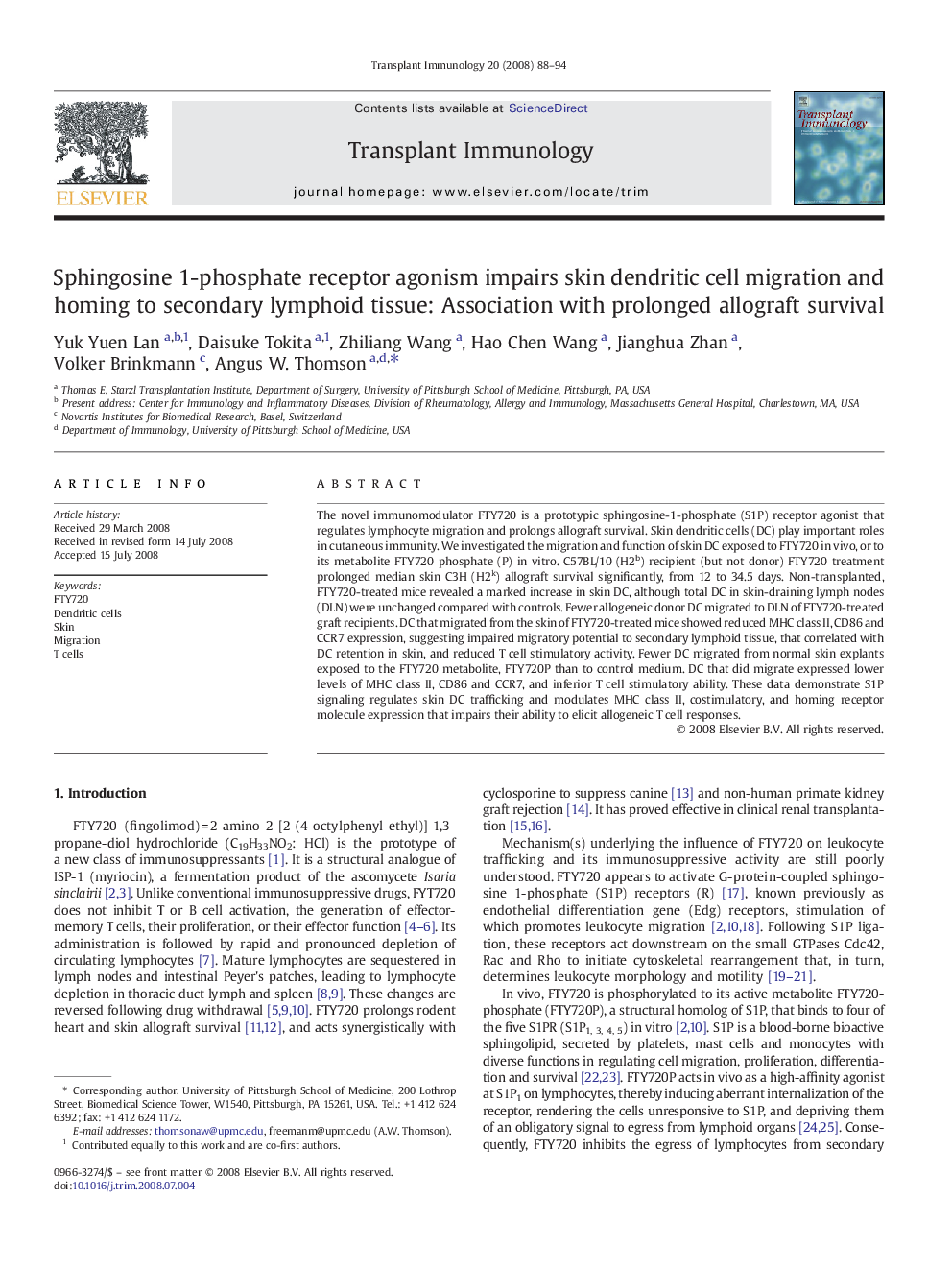| Article ID | Journal | Published Year | Pages | File Type |
|---|---|---|---|---|
| 3392434 | Transplant Immunology | 2008 | 7 Pages |
The novel immunomodulator FTY720 is a prototypic sphingosine-1-phosphate (S1P) receptor agonist that regulates lymphocyte migration and prolongs allograft survival. Skin dendritic cells (DC) play important roles in cutaneous immunity. We investigated the migration and function of skin DC exposed to FTY720 in vivo, or to its metabolite FTY720 phosphate (P) in vitro. C57BL/10 (H2b) recipient (but not donor) FTY720 treatment prolonged median skin C3H (H2k) allograft survival significantly, from 12 to 34.5 days. Non-transplanted, FTY720-treated mice revealed a marked increase in skin DC, although total DC in skin-draining lymph nodes (DLN) were unchanged compared with controls. Fewer allogeneic donor DC migrated to DLN of FTY720-treated graft recipients. DC that migrated from the skin of FTY720-treated mice showed reduced MHC class II, CD86 and CCR7 expression, suggesting impaired migratory potential to secondary lymphoid tissue, that correlated with DC retention in skin, and reduced T cell stimulatory activity. Fewer DC migrated from normal skin explants exposed to the FTY720 metabolite, FTY720P than to control medium. DC that did migrate expressed lower levels of MHC class II, CD86 and CCR7, and inferior T cell stimulatory ability. These data demonstrate S1P signaling regulates skin DC trafficking and modulates MHC class II, costimulatory, and homing receptor molecule expression that impairs their ability to elicit allogeneic T cell responses.
